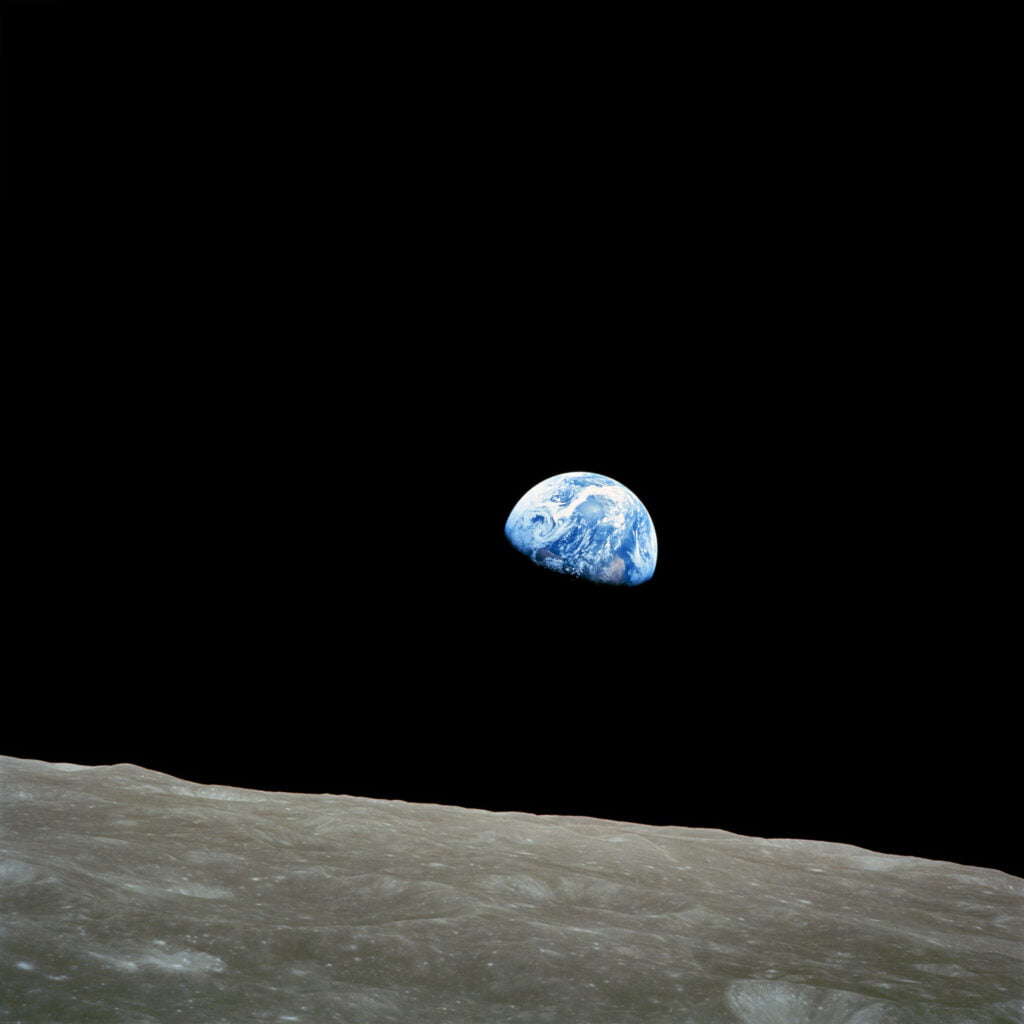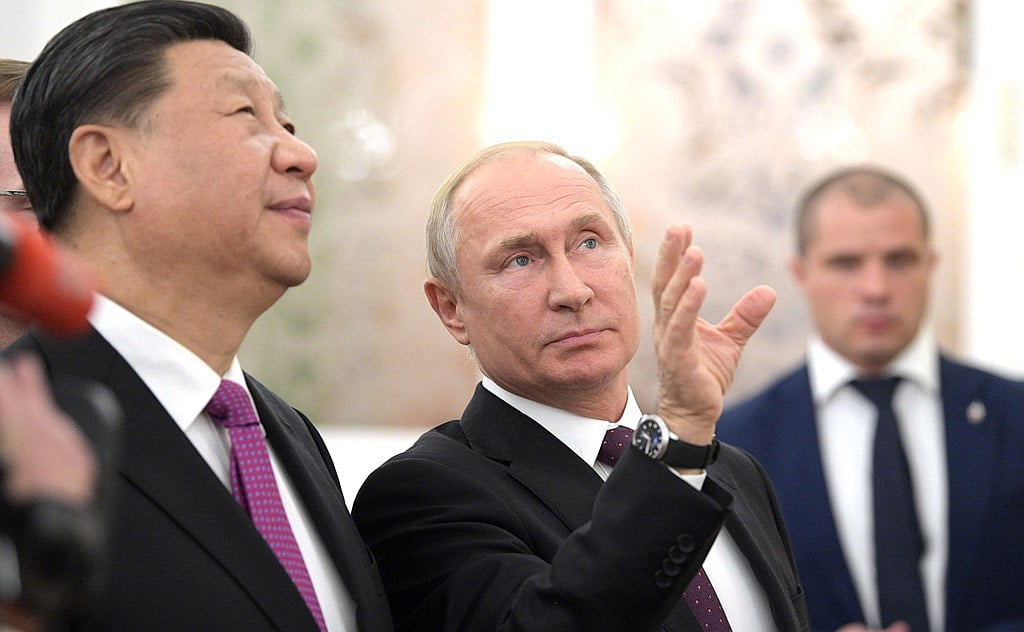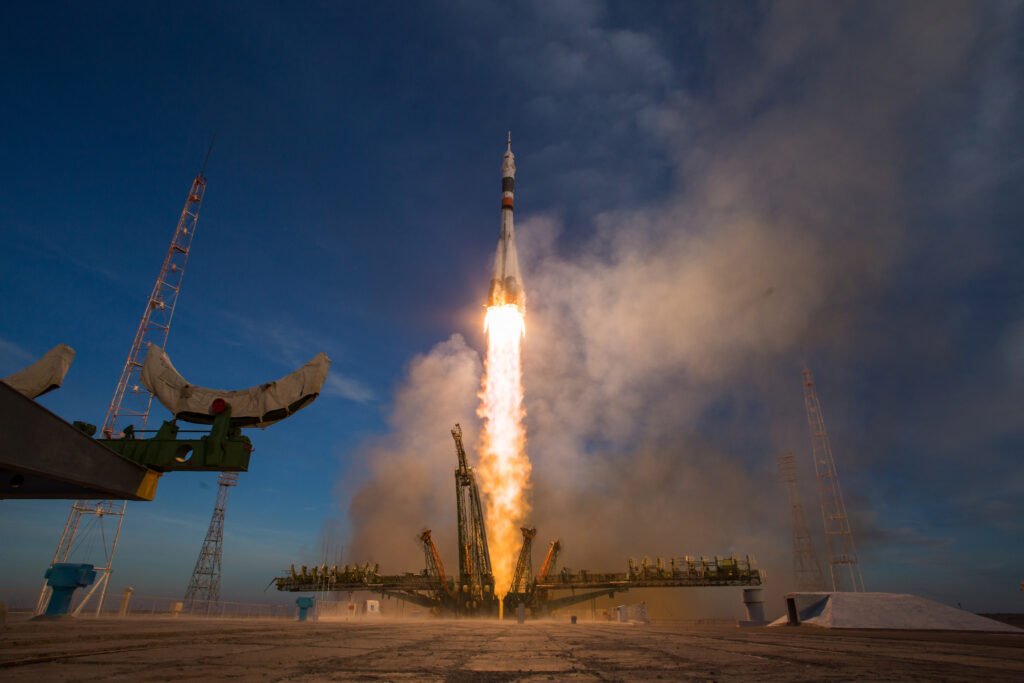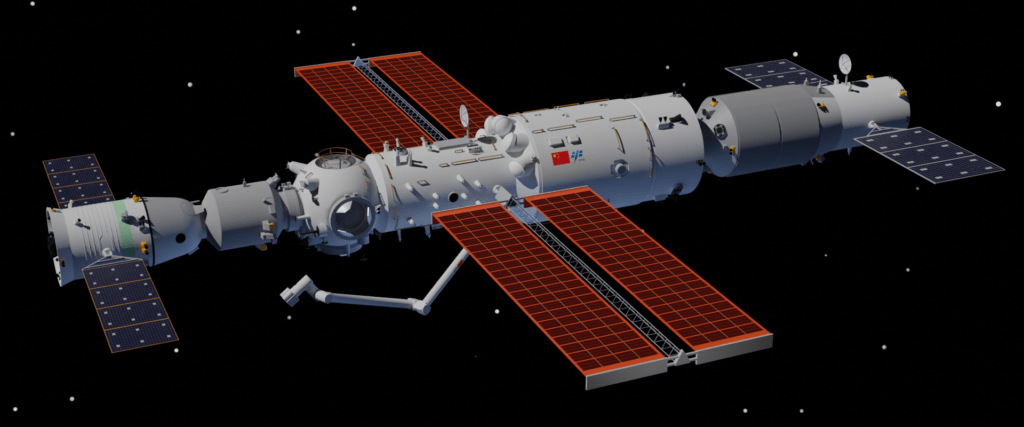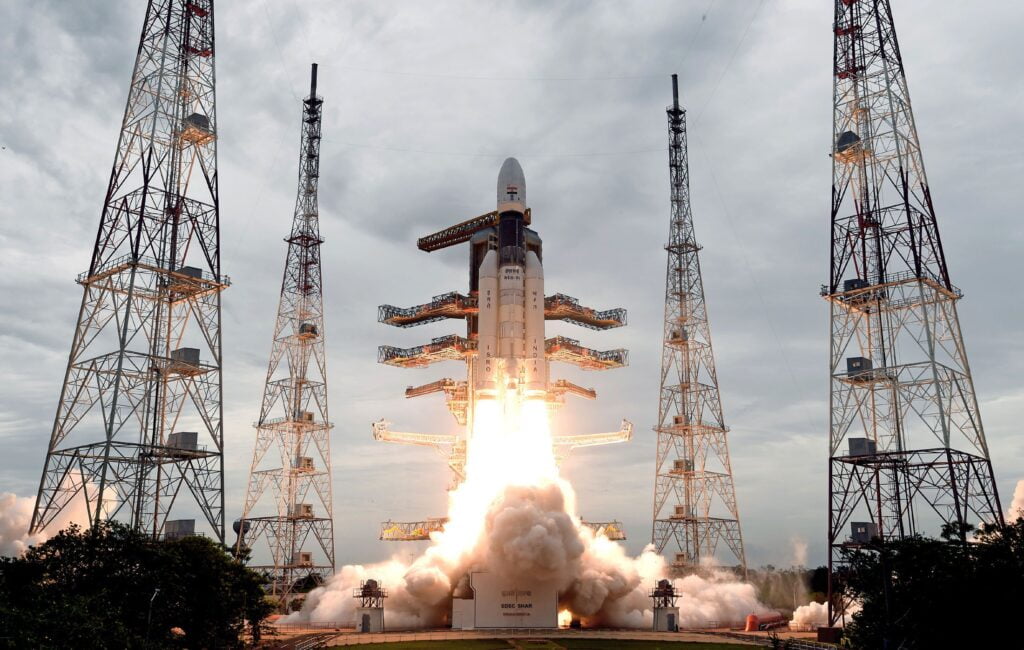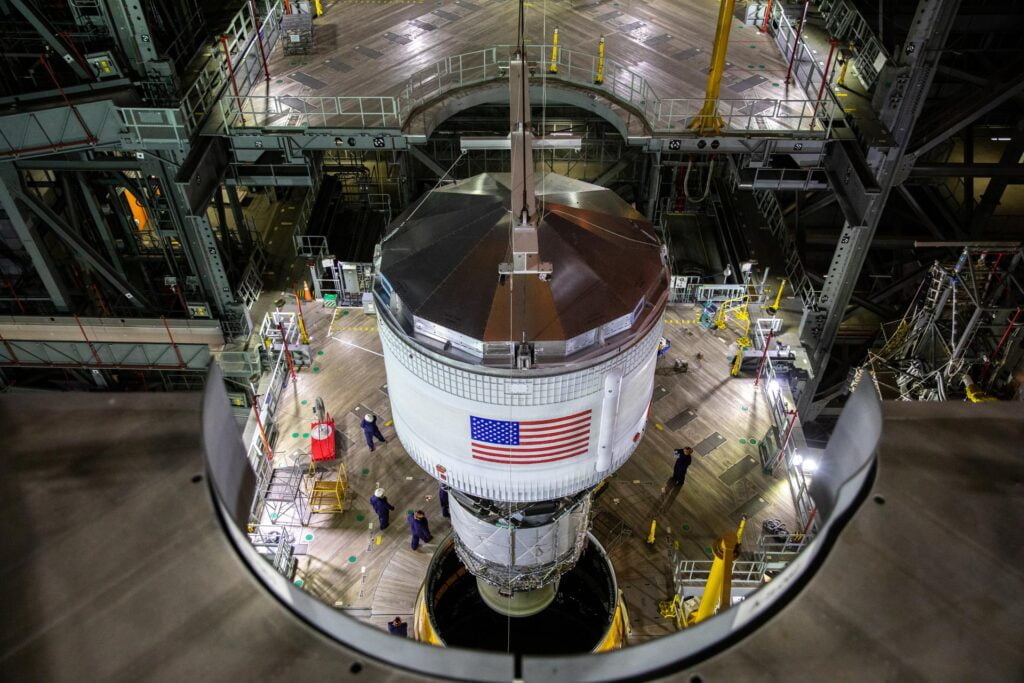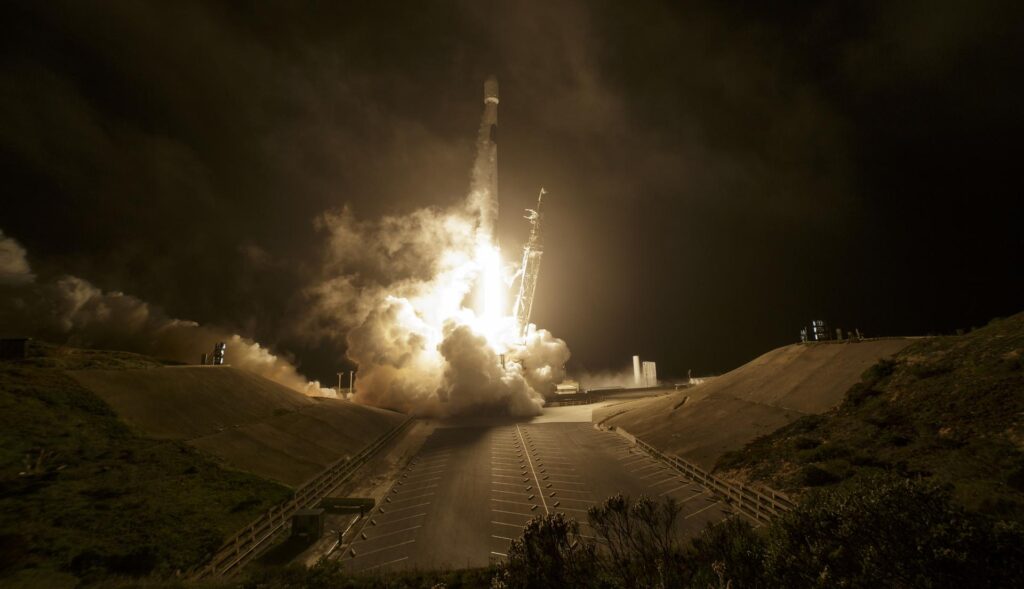Responsibility for cleaning up space can be modelled on strategies to mitigate climate change.
 Space junk poses a significant threat to satellites and space infrastructure. Picture: NASA, Wikimedia Commons : NASA, Wikimedia Commons CC BY 4.0
Space junk poses a significant threat to satellites and space infrastructure. Picture: NASA, Wikimedia Commons : NASA, Wikimedia Commons CC BY 4.0
Responsibility for cleaning up space can be modelled on strategies to mitigate climate change.
Satellites orbiting Earth provide essential services to humanity. They connect us via the internet, they help with mapping and GPS and they monitor our changing climate, among other things. But ‘space junk’ threatens our use of satellites. Decommissioned satellites or their dislocated parts may lead to a chain reaction where small pieces of debris tear apart large objects in a cascading event creating more and more debris.
Responsibility for space junk removal is an environmental problem similar in some ways to climate change – it’s a collective responsibility. And just as managing climate change is assisted by satellites, so managing satellite debris can be assisted by climate change.
Like climate change, the problem of space junk can only be tackled by international cooperation. The UN Framework Convention on Climate Change, signed at the Rio Earth Summit in 1992, was the first and most complex instrument of international law to address climate change and can provide some insights into how to manage space junk.
The convention includes a principle called Common but Differentiated Responsibilities (CBDR). It says “states should be held accountable in different measure according to their respective historical and current contributions to the creation of global environmental problems and their respective capacities to address these problems”.
With climate change, nations acknowledged that industrialised countries had contributed significantly more to climate change than countries with developing economies and therefore should bear greater responsibility for managing its consequences. According to the “polluter-pays” principle, the extent that a country has contributed to climate change as well as its capacity to mitigate climate change is taken into account.
All space activities are threatened by space junk contamination. The plans of nations that do not yet possess the resources to engage in space activities may be rendered meaningless by it, and that’s even if only the space objects that are still in use are considered. Countless defunct objects cloud Earth’s orbit and they are growing in number. When they have developed the means to do so, these nations may discover they can no longer exercise their right to explore space.
Philosophers throughout history have pondered how best to coordinate international cooperation and decision-making. In Perpetual Peace: A Philosophical Sketch (1795), Immanuel Kant considers the repercussions of humanity entering a universal community where violations of the law in a certain part of the world are experienced everywhere. Envisioning the world as a federation of states promoting international trade and abolishing war, Kant proposes ‘cosmopolitan law’ as the foundation for global society to guarantee lasting peace. Kant’s ideas influenced the establishment of the League of Nations as well as the contemporary United Nations.
In 2002, the International Criminal Court (ICC) was formally established. It introduced a new version of cosmopolitan law that transcends Kant’s concept. Its version reflects the tendency of international law to weaken state sovereignty or the fact that an individual is subject to their national laws. It gives people rights and responsibilities under international law.
Nations share common experiences, such as climate change, and they rely on the same global prices. They transit weapons to other countries and affect the lives of people on the other side of the globe. International relations scholar Anthony Burke speaks about a “common space of life and death that we have created”. He argues that “globalised human existence” should be understood as “a networked set of interdependencies and obligations beyond all borders”.
Such a global society system would assist long-term human security. Nations and their militaries would need to behave responsibly with regard to future generations and the sustainability of the global ecosystem.
Burke acknowledges that pursuing universal values and global ends would require the transformation of states and international law. Power and cooperation on global issues would be reconfigured. He refines Kant’s concepts simply as: “act as if both the principles and consequences of your action will become global, across space and through time, and act only in ways that will bring a more secure life for all human beings closer”.
Developing an international legal instrument for space junk mitigation would expand the concept of sustainability from Earth to outer space while shifting the issue of orbital debris in a cosmopolitan direction. New laws could follow the architecture of the Kyoto Protocol and the responsibility principle that underpins it.
The responsibility principle was crafted to tackle global environmental problems and is therefore perfectly applicable to space junk – an environmental problem on a global scale. Nations that only recently initiated their space activities, or plan to do so, face environmental degradation for which they bear no responsibility.
The equitable way forward is for the nations that were responsible for space-junk to clean it up. This accords with the United Nations Committee on the Peaceful Uses of Outer Space when it says “mitigation of existing debris should take into consideration the [responsibility] principle”.
Dr Nicol Svárovská is a graduate of international law at the Geneva Academy of International Humanitarian Law and Human Rights, researcher, and anthropologist with experience in journalism and teaching. As a communication consultant at the United Nations in New York, she covers the Third Committee, mostly human rights issues. This corresponds with her academic focus on international refugee law, international humanitarian law, and international human rights law.
Dr Svárovská disclosed no conflicts of interest in relation to this article.
This article has been republished to align with World Space Week. It was first published on April 11, 2022.
Originally published under Creative Commons by 360info™.



